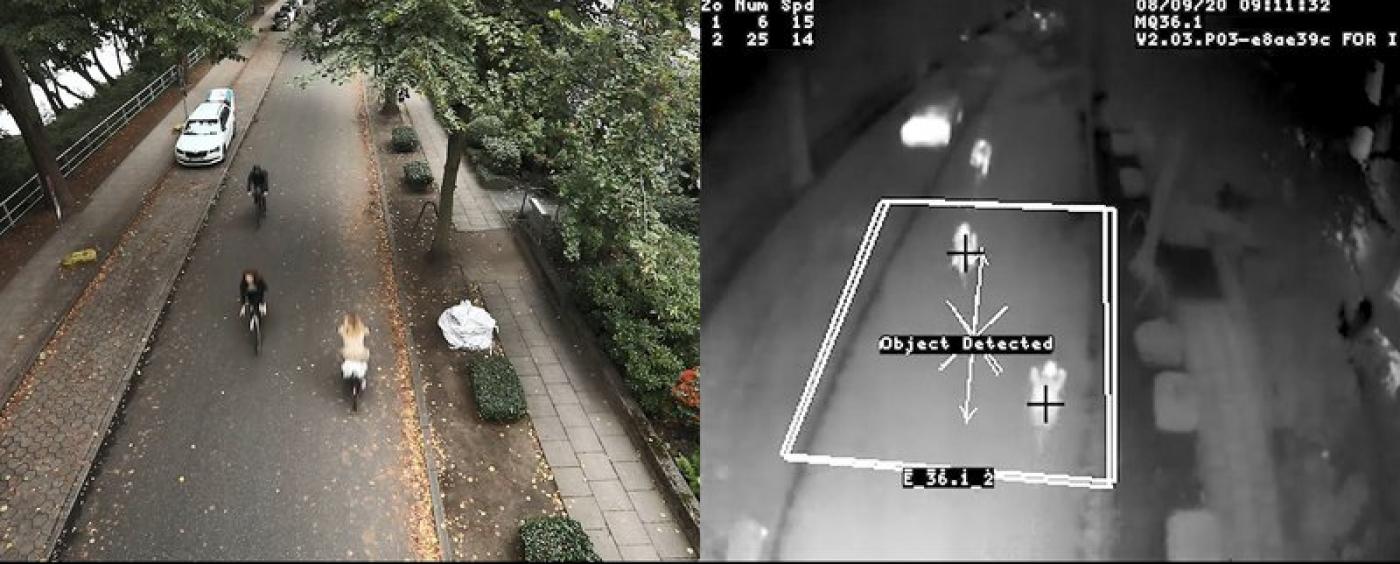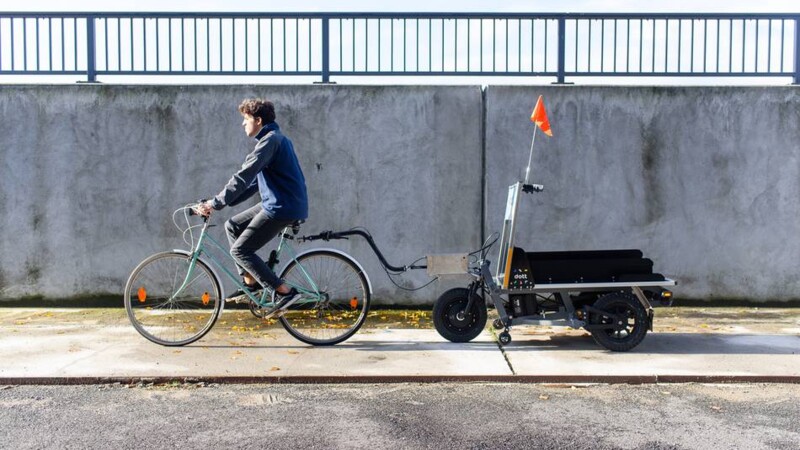Tjarks remarked: "A 33 per cent increase in bicycle traffic over 2019 is an extremely motivating figure. It confirms that we are on the right course in terms of the mobility transition. But we want a more precise picture and we need constant counts throughout Hamburg for this." At present, 55 permanent counting stations record cyclists, who are anonymised, with thermal imaging cameras. The counting stations have been set up on main roads or district roads, cycle routes and on secondary routes. The plans foresee around 100 cameras all over the city in the medium term.
Hamburg's new bicycle counting network (HaRaZäN) has launched with an initial 55 thermal imaging cameras. This comes after a count in August and September 2020 indicated a 33 per cent increase in bicycle traffic over 2019. The data collected will help traffic regions adapt to the needs of a modern, mobile city and raise the attractiveness of cycling, said Anjes Tjarks, Senator for Transport and Mobility Transition. The bicycle counting network is one of 85 ongoing projects in the senate’s ITS strategy and has received around EUR 690,000 in funds from the German Ministry of Transport and Digital Infrastructure (BMVI).
Up to 100 thermal imaging cameras across Hamburg
Data-based decisions
The figures collected serve as a basis for expanding bicycle traffic and allocating traffic areas sensibly and efficiently in terms of the mobility transition. This publicly available data can then be used to set up attractive software offers for cyclists. Initial data has already been published on Hamburg's Urban Data Platform. Until now, data on bicycle traffic was obtained only through an annual measurement at the only permanent counting station on Gurlitt Island on the Outer Lake Alster.

ITS project - digitalisation of cycling
The bicycle counting network is one of several ITS projects on "Data and Information" and has received EUR 690,250 from Germany's Ministry of Transport and Digital Infrastructure (BMVI) as part of the "Digitalisation of Urban Transport Systems" guideline. The Hamburg Verkehrsanlagen GmbH (HHVA) is responsible for the technical realization while the Landesbetrieb Geoinformation und Vermessung (LGV) is tasked with preparing, visualising and processing data. The Landesbetrieb Straßen, Brücken und Gewässer (LSBG) is managing the project and will use the data as a basis for its planning decisions in future.
At present, Hamburg is preparing to host the world's largest ITS World Congress on Intelligent Transport Systems from October 11-15, 2021 with BMVI. Around 15,000 trade visitors are expected at the congress which is already proving a catalyst of the senate's ITS strategy. Hamburg is positioning itself as a model and laboratory of intelligent transport and logistics solutions at the congress.
sb/pb
Sources and further information
More
Similar articles

Nüwiel producing trailers for e-scooters

"U3-Fiete" - world's most frequently used bicycle

Rush on Hamburg's grants for cargo bikes
